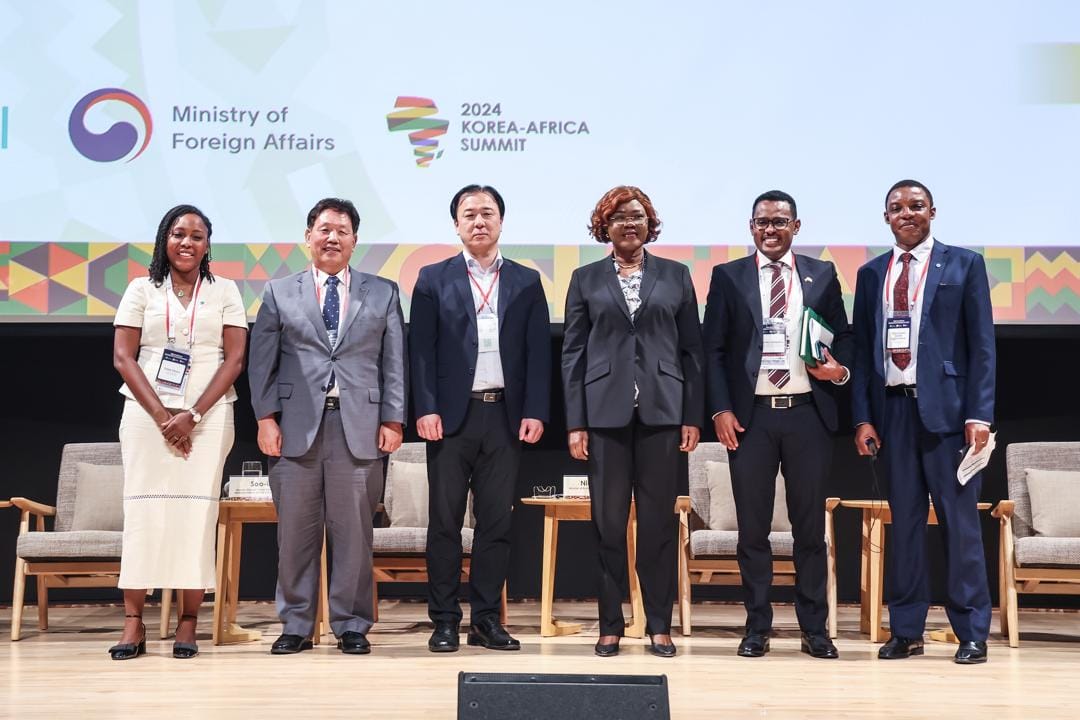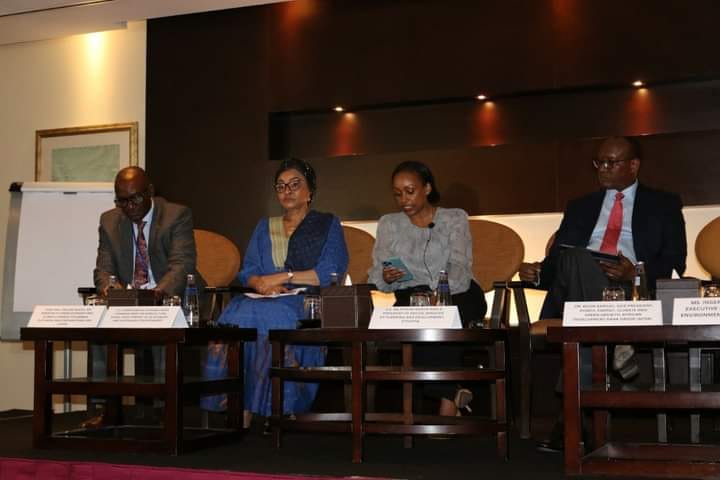News detail

Ethiopia Highlights Challenges and Commitments in Accessing Green and Climate Finance at Korea-Africa Summit
- by admin - 0 minutes
- 0
- 109
- 3 min read
- 489 words
Ethiopia Highlights Challenges and Commitments in Accessing Green and Climate Finance at Korea-Africa Summit
******************************************************************************************
Addis Ababa, June 4, 2024
Ethiopia participated in the High-level Forums on the sidelines of the Korea-Africa Summit 2024, which focused on the theme "Accelerating Access to Green and Climate Finance for Africa: Pioneering Korea-Africa Partnership."
The forums provided a platform for mutual, beneficial, and sustainable long-term cooperative relations between Korea and Africa, facilitating partnership and new opportunities to pave the way for green growth in Africa.
H.E. Dr. Nemera Gebeyehu Mamo, State Minister at the Ministry of Planning and Development, expressed Ethiopia's commitment to playing its part in the global climate agenda. He stated that Ethiopia is integrating climate resilience into its national development strategies and actively pursuing green growth pathways.
"Ethiopia remains committed to creating an enabling environment for climate finance by implementing policies that promote renewable energy, sustainable agriculture, and reforestation," said H.E. Dr. Nemera. "As stated in our Nationally Determined Contribution (NDC), Ethiopia needs approximately $316 billion to achieve its climate goals by 2030, underscoring the urgent need for mobilizing substantial climate finance from diverse sources."
However, Ethiopia faces several challenges in accessing green and climate finance, both domestically and internationally.
Domestically, government institutions lack the capacity to present cohesive and compelling proposals to international donors and financial institutions, and there are inadequate mechanisms to monitor and report on the impacts of funded projects. The issue of debt burden also limits access to non-concessional green and climate finance.
At the international level, Ethiopia faces the challenge of meeting the cumbersome and stringent requirements set by international financial institutions and climate funds, which can be overwhelming for institutions with limited capacity. Furthermore, the competition for international green finance is intense, with many developing countries competing for a limited pool of resources. The geopolitical landscape and donor priorities also significantly impact Ethiopia's ability to secure international green finance.
To overcome these challenges, Ethiopia is working closely with partners to enhance its institutional capacity and coordination to manage and deploy green finance effectively. The country is creating a policy and institutional environment that incentivizes the participation of the private sector in climate change mitigation and adaptation actions, including in the generation of clean energy. Ethiopia has also embarked on large-scale restoration of degraded landscapes through nature-based solutions under the Green Legacy Initiative (GLI) and is working on a legal framework for sustainable financial mechanisms for the GLI and other degraded landscape programs.
Additionally, Ethiopia is exploring non-traditional sources of finance, such as debt-for-climate swaps, carbon trading, and green bonds. Through diplomatic engagements and processes under the United Nations Framework Convention on Climate Change (UNFCCC), Ethiopia is strongly calling on global financial institutions and donor countries to scale up their support and facilitate access to climate funds for the most vulnerable nations.



